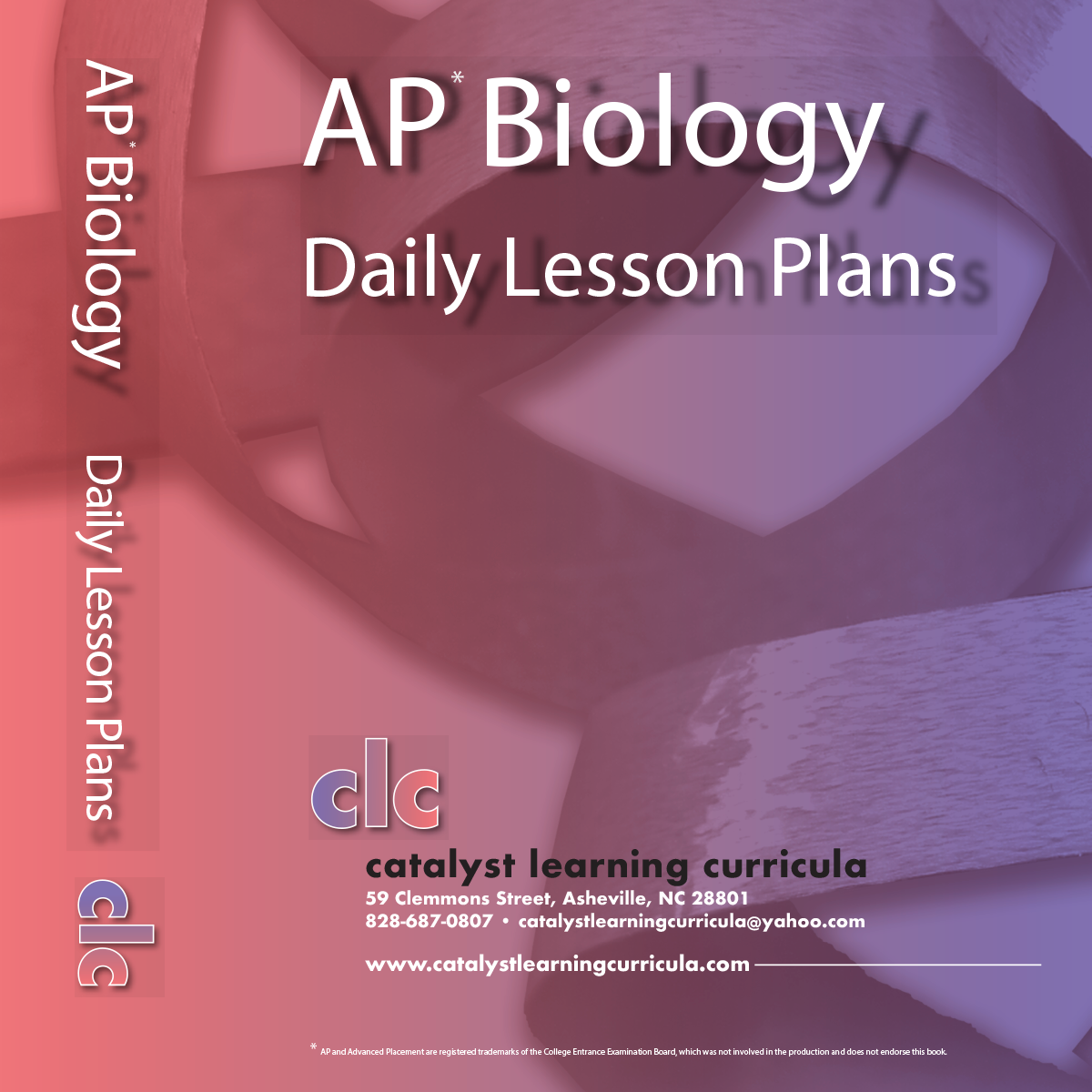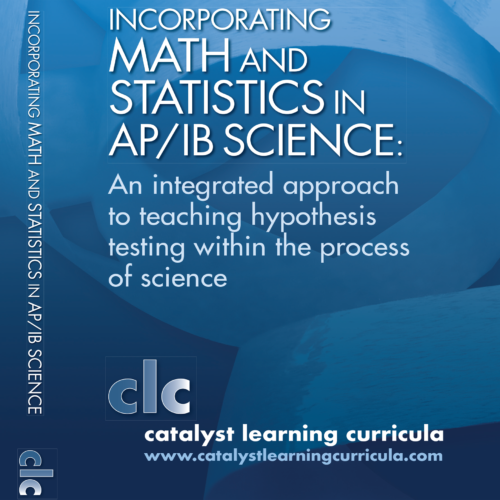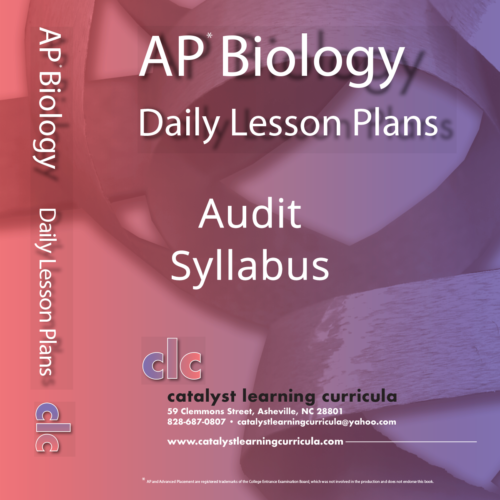Description
All editions of the Daily Lesson Plans curricula dated 2012 or later exceed the changes made to AP Biology by the College Board in 2012 and 2019.
There are two Catalyst Learning Curricula offerings for educators who teach AP Biology: the AP Biology Daily Lesson Plans micro-to-macro approach, and the Case Studies for Advanced Science “Big Ideas” approach. The AP Biology Daily Lesson Plans curriculum follows the progression typically found in a textbook, while the Case Studies for Advanced Science integrate the content using the Next Generation Science Standards “storyline” format.
The AP Biology Daily Lesson Plans curriculum is recommended for:
- A new AP Biology teacher who needs help making it through the first few years
- An experienced teacher who would like to change from a lecture-driven classroom to a student-centered learning environment (aka a “flipped classroom”)
- A teacher, department, school or district aiming to raise AP scores
- A teacher, department, school or district focused on differentiated learning or seeking to make their AP courses more inclusive
- A seasoned teacher looking for fresh ideas and novel techniques to address multiple intelligences
If you are a seasoned teacher, the Case Studies for Advanced Science series allows the AP Biology course to be taught in a series of 6- to 8-week units in which students explore a real-world concept in great depth while covering the content and skills of the AP course. Please see the “Special Curricula” page to construct a full-year course from selected titles, including Hemoglobin, AIDS, and Diabetes.
AP Biology Daily Lesson Plans contains student-centered activities that allow teachers to deliver a higher-order thinking and engagement activity for each content topic required in the AP College Board course. Instruction follows Next Generation Science Standards (NGSS) and exceeds the College Board scope and skills for the 2019 redesigned course. A prepared Audit Syllabus is available to teachers who intend to follow the lesson plans included in this curriculum (please go to the Audit Syllabus page for more information about this product).
Each lesson plan includes learning objectives, a materials list, and steps to follow for guiding kinesthetic activities each day. Daily warm-up activities, free-response essay practice, and homework assignments link one lesson plan to the next, and AP labs are slotted into the calendar in the appropriate places. When student handouts or a grading rubric is required, they are included in a reproducible format. A year-long calendar that is malleable helps the teacher stay on track to complete all topics by mid-April, with suggested teaching time written in minutes and adaptable to any type of class schedule. No prior student knowledge is assumed, so prerequisite information is folded into the lesson plans to ensure comprehension and inclusivity.

All Catalyst Learning Curricula use a variety of instructional methods to develop the strengths and weaknesses of a diverse class of students. Games, debates, role-playing, lab and field experimentation, modeling, evidence-based argumentation, simulations, and other forms of kinesthetic learning demand a high level of engagement by the learner, resulting in deeper comprehension and retention.
Samples of the AP Biology Daily Lesson Plans curriculum are available on the Sample Lesson Plans page. Download all Catalyst Learning Curricula samples to see the consistent voice, structure, and style found in every CLC lesson plan. Support is available through on-site training or Summer Workshops to help teachers optimize student-centered learning.
If you are looking for ways to demand more of your students, refine formative assessment or simply want to freshen-up your methods, consider attending a Critical Thinking Activities workshop on genetics, evolution, ecology, cell biology or anatomy and physiology. Check it out what is offered this year on the Summer Workshops page.




Reviews
There are no reviews yet.